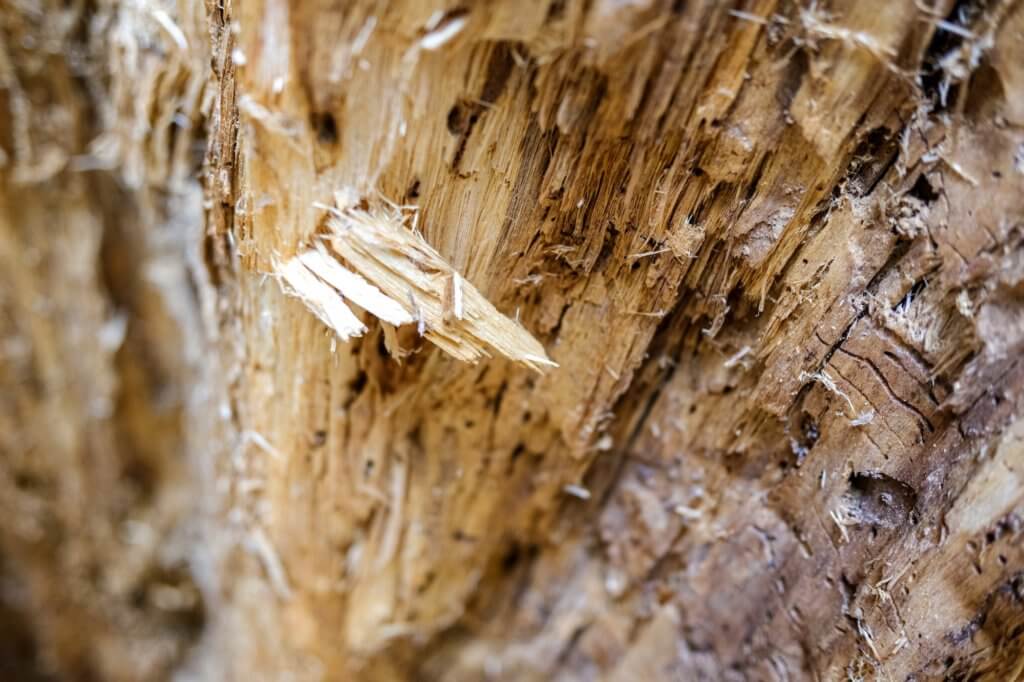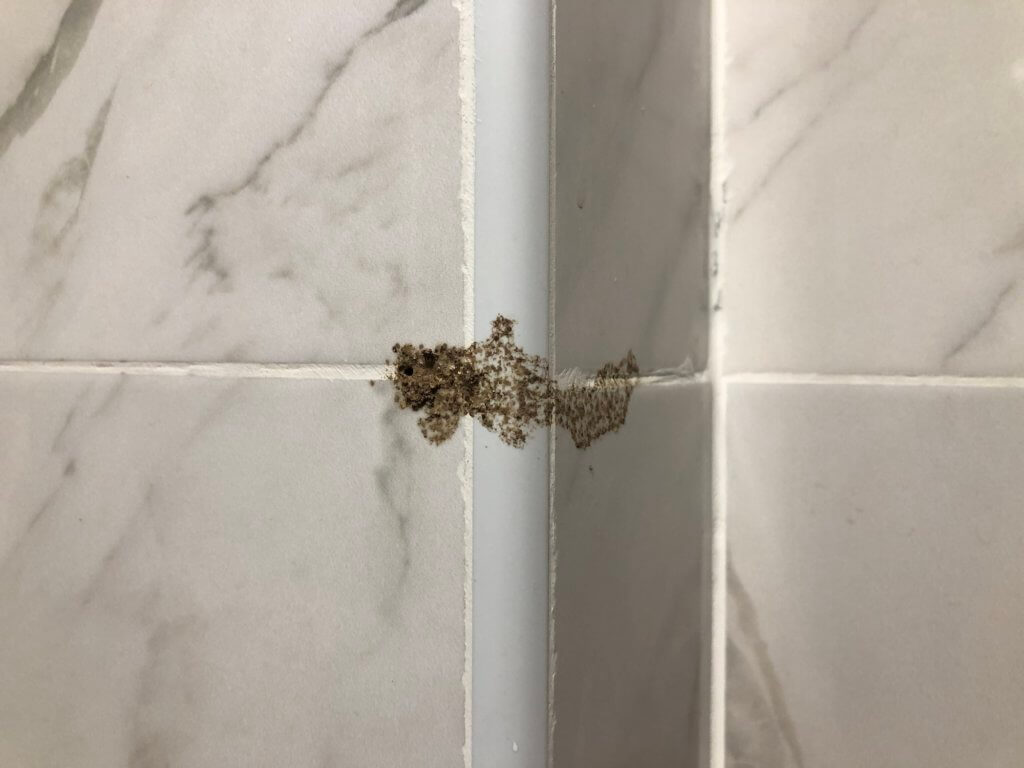We are always hearing “do I need a termite inspection”. Well, termites are a common problem in Missouri and Kansas homes, including the Kansas City area. While termite infestations can be difficult to detect, they’re not impossible to find. If you want to ensure that your home is free of termites, you need to schedule an annual inspection with a professional from Gunter Pest & Lawn.
Termites Are Common In Missouri And Kansas
Termites are everywhere in Missouri and Kansas. In fact, they’re found in every county and city across the country. That’s why a termite inspection is a must if you think your home may be at risk of termite damage. Even if you don’t see any signs that there are termites in your house, it’s important to get a termite professional to come out and inspect before spending money on other repairs or renovations.

Termites Eat Both Hardwoods And Softwoods
Termites are omnivorous. Termites eat wood, but they also eat anything else that contains cellulose. That includes paper, cardboard, books, and even the paper covering of electrical cables. According to a study by the University of California Berkeley on the dietary preferences of subterranean termites, termites prefer softwood over hardwood trees 82.2% of the time; however, they will consume both types if given a choice between them. Termites have been known to eat through concrete walls and floor tiles as well as metals such as aluminum and lead pipes or wires in order to get to their food source (in this case wood).
You May Not Know You Have Termites
You may not know you have termites. The pests can be hidden in your walls, floors, and furniture. They can also be hidden by carpeting, insulation, and wood trim or siding.
If you don’t want to hire an exterminator to find out if you have termites, there are some signs that indicate that they could be in your home:
- Wood shavings appearing around the house—these are common signs of termite activity.
- Sagging floors or ceilings.
- Cracks along the baseboards or windowsills.
You Don’t Have To See Termite Damage To Have A Problem
Termites can eat away at your home without you noticing.
You don’t have to see termite damage to have a problem. In fact, you can have termites without any visible damage. You might not even be aware that you’ve got them until the pests get bad enough that they start doing noticeable damage. A homeowner with a termite infestation will often notice little piles of dirt on the floor after turning on their air conditioning unit or fans in their home because they’re attracted to these sources of moisture and humidity (which is why they’ll also try and find ways into your house). This is just one sign that there’s an infestation present in your house; however, it’s certainly not the only one!
Damage Caused By Termites Is Rarely Covered By Home Insurance Policies
Damage from termites is only covered by home insurance policies in some states. In Kansas and Missouri, for example, home insurance policies do not cover termite damage. However, there are other states where damage from termites may be covered by your home insurance policy. If you’re interested in learning whether your state has laws regarding coverage of termite damage and if you can expect to have it covered by your home insurance policy, contact your state’s department of insurance for more information about the regulations that apply to you.
Termite Treatments Are More Effective When You Find The Problem Early
Termite treatments are more effective when you find the problem early. If you see signs of termites, or if you know they’ve been in your home in the past, it’s important to call a professional pest control company right away so they can get to work on treating the infestation before it gets out of hand.

Termites are destructive creatures that can wreak havoc on a home. While some homeowners might not notice termite damage for several years after its initial occurrence, there are ways for homeowners to catch signs of an infestation early on—and take action immediately:
how often should you get a termite inspection IN Kansas City?
If you own a home in Missouri or Kansas, schedule an inspection at least once a year. Termites are sneaky creatures that can cause major damage to your property if left unchecked. You should be proactive about your home and make sure you keep up with regular termite inspections to ensure the safety of both yourself and the investment you’ve made in your property.
If you are buying or selling a home, it is also essential that both buyers and sellers get their properties inspected for termites before closing on their sale. As mentioned above, termites pose an extreme health risk to people who have allergies or respiratory issues such as asthma. Additionally, they can cause thousands of dollars worth of damage within hours if left untreated!
Conclusion
Termites are not only destructive, but they can also be hard to spot. It’s important to have a professional inspect your home, especially if you’ve recently bought it or moved into a new neighborhood. With that said the answer to the question “Do I Need A Termite Inspection” is a resounding YES!
Speak with a live Gunter representative today about our Termite Services by calling 816-444-2847 or using our contact form and we will help you with your residential or commercial pest control needs.
Termite Inspections: Frequently Asked Questions
What if a house fails a termite inspection?
If a house fails a termite inspection, it means that active termites, termite damage, or conducive conditions for termite infestation have been found. In such cases, it's crucial to address the issues promptly. The extent of the problem will determine the necessary steps, which may include treatment by a professional pest control company, repairs to damaged wood, and implementing preventative measures to deter future infestations.
How to prepare for a termite inspection?
Preparing for a termite inspection involves ensuring that the inspector has access to all areas of the property, both inside and outside. Clearing clutter, moving furniture away from walls, and trimming vegetation around the exterior of the house can help facilitate a thorough inspection. Additionally, it's essential to address any existing moisture issues, such as leaks or standing water, as these can attract termites.
How long does a termite inspection take?
The duration of a termite inspection can vary depending on the size of the property, the complexity of the structure, and the presence of conducive conditions for termite activity. On average, a termite inspection may take anywhere from 30 minutes to an hour or more. However, it's important for inspectors to be thorough, so they may take longer if they encounter signs of termite activity or conditions conducive to infestation.
Who pays for a termite inspection, the buyer or seller?
The responsibility for paying for a termite inspection can vary depending on the terms negotiated between the buyer and seller in the real estate transaction. In some cases, the seller may pay for the inspection as part of preparing the property for sale. In other cases, the buyer may choose to cover the cost of the inspection as part of their due diligence before purchasing the property. Ultimately, it's essential for both parties to clarify who will be responsible for the inspection costs during the negotiation process.
How often should you have a termite inspection?
The frequency of termite inspections depends on several factors, including the location of the property, its construction type, and the history of termite activity in the area. In general, it's recommended to have a termite inspection conducted at least once a year, particularly in areas where termite infestations are common or during the real estate transaction process. Additionally, homeowners should be vigilant for signs of termite activity year-round and schedule inspections as needed if signs are detected. Regular inspections can help detect termites early and prevent costly damage to the property.
Be Sure To Check Out Some Of Our Services:
Lawn Care — Rodents — Cockroaches — Spiders — Bed Bugs








